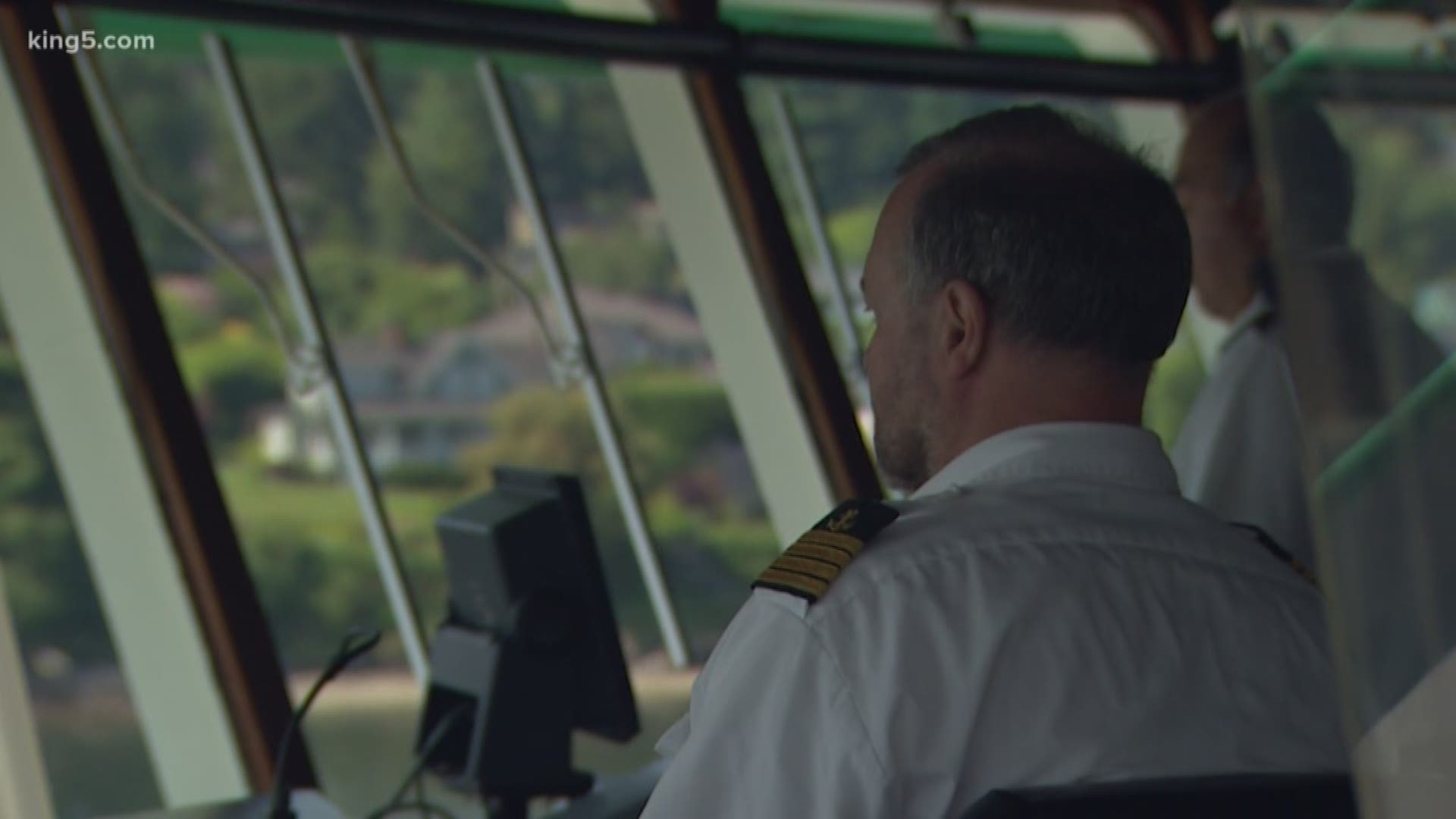Editor's note: The above video previously aired on KING 5 about how ferry staff spot hazards while on their route.
Washington State Ferries (WSF) received a $1.5 million federal grant to continue work on converting some of its largest vessels from diesel fuel to hybrid-electric propulsion.
The funding will go towards converting one of the two Jumbo Mark II ferries used in the Seattle-Bainbridge route, to help reduce emissions on one of WSF's busiest trips.
The money was provided by the U.S. Department of Transportations' Maritime Administration. The organization awarded a total of $7.5 million to nine Marine Highway projects across the country.
“This $7.5 million investment will improve our country’s vital fuel-efficient waterway transportation system, which makes an important contribution to exports and economic growth,” U.S. Secretary of Transportation Elaine L. Chao said.
WSF received the second-largest grant, after Oregon's over $1.6 million to expand Port Morrow, near Vancouver. Wash.
WSF has been working to make its three largest ferries, the Jumbo Mark II's, energy-efficient since 2012.
Last year, the Department of Ecology approved $35 million from a federal Volkswagon settlement to be used to convert the first of WSF's Jumbo Mark II ferries into hybrid-electric propulsion operating vessels.
The Jumbo Mark II ferries carry 202 cars and 1800 passengers each and primarily operate on the Seattle/Bainbridge and Edmonds/Kingston routes.
Ferries are currently the largest generator of greenhouse gas emissions in state transportation, with vessels producing 73% of annual greenhouse gases, WSF officials said.
Estimates by WSF say upgrades to their ferries could reduce total carbon emissions by up to 25% and save up to $14 million a year in ferry operating costs.
In compliance with Governor Jay Inslee's Executive Order 18-01, WSF intends to eventually operate a zero-emissions fleet.

